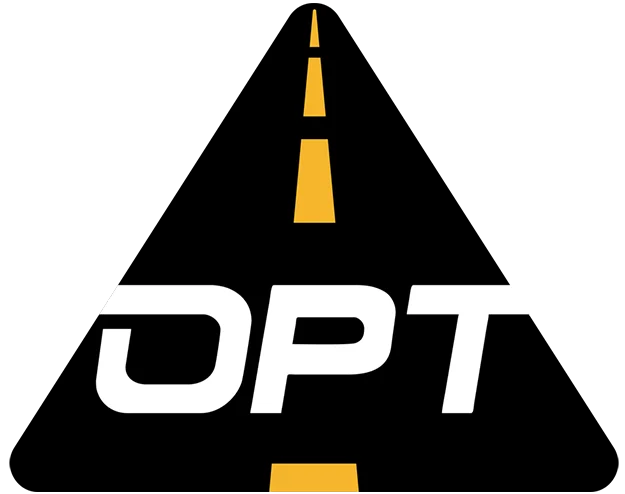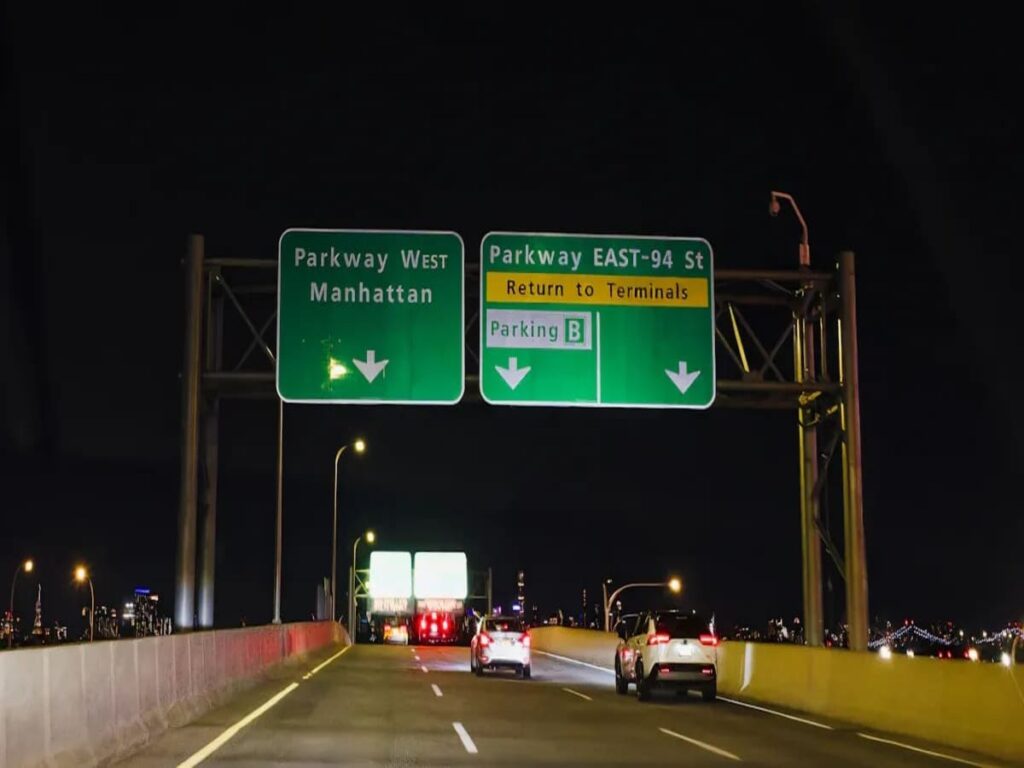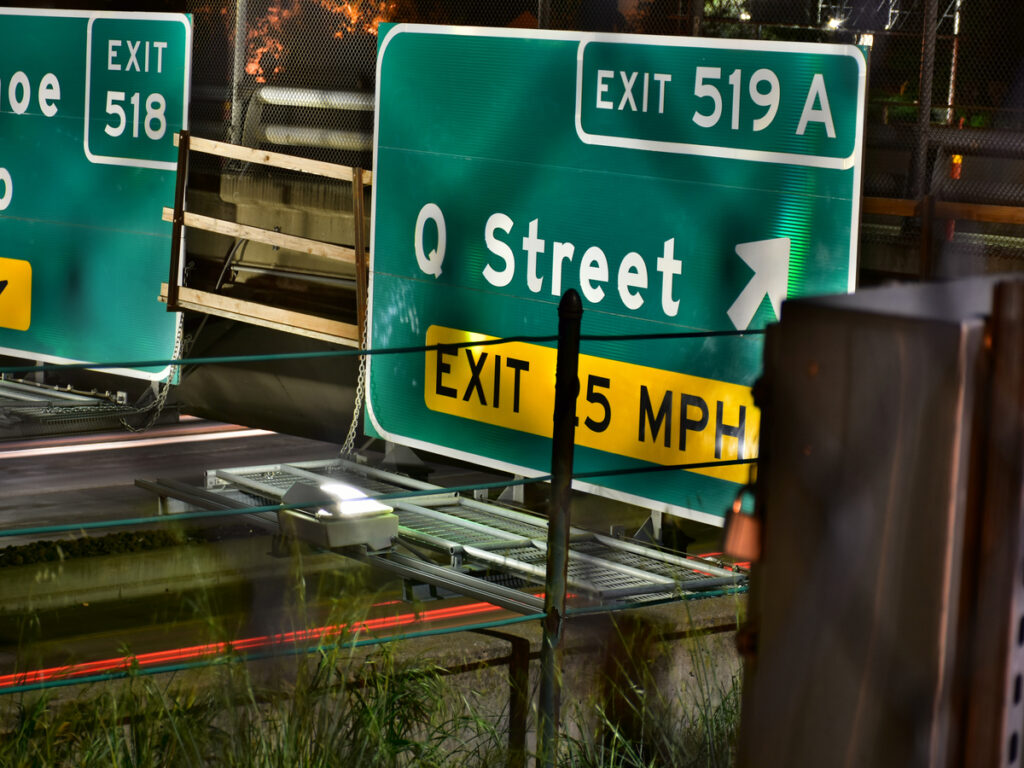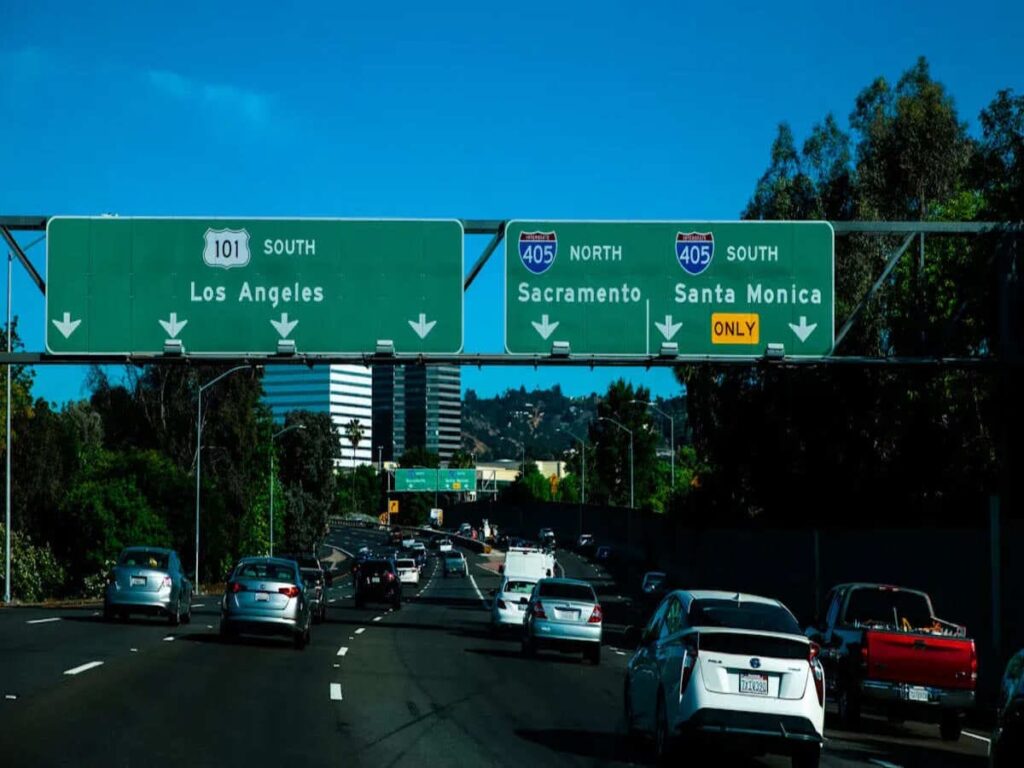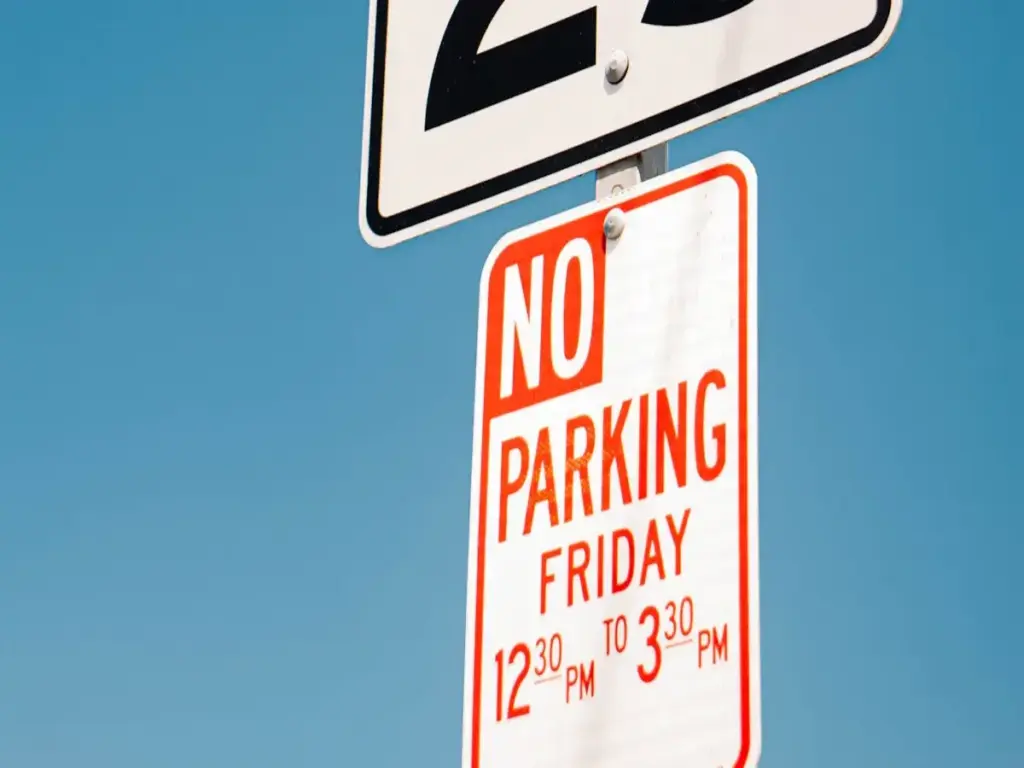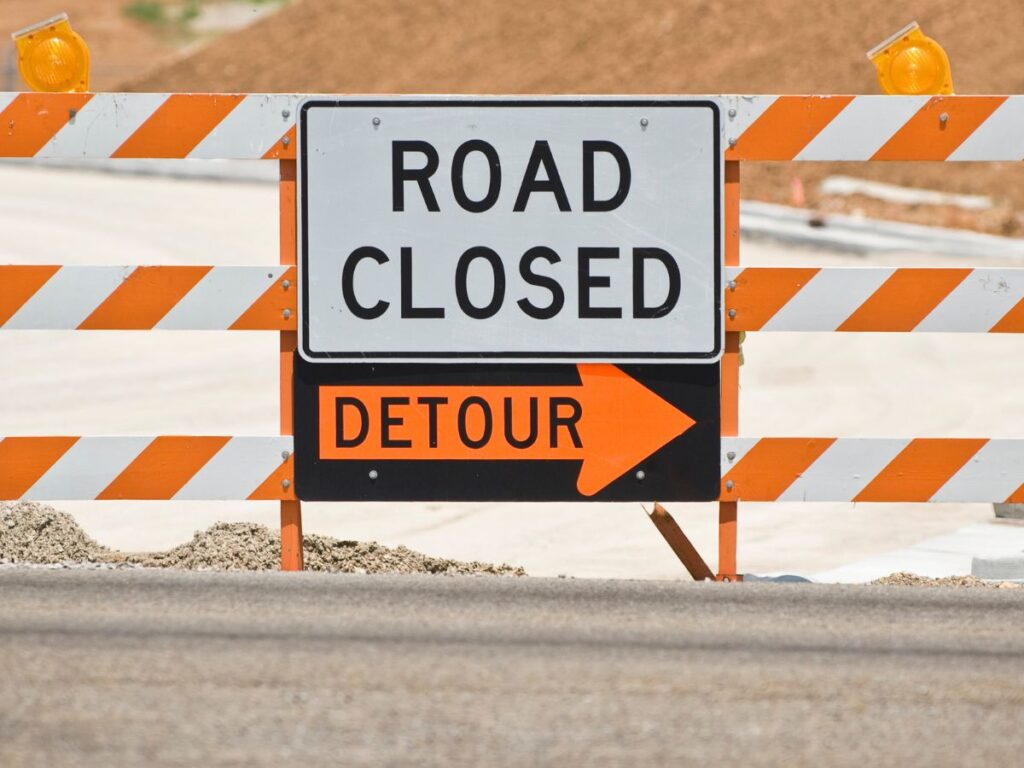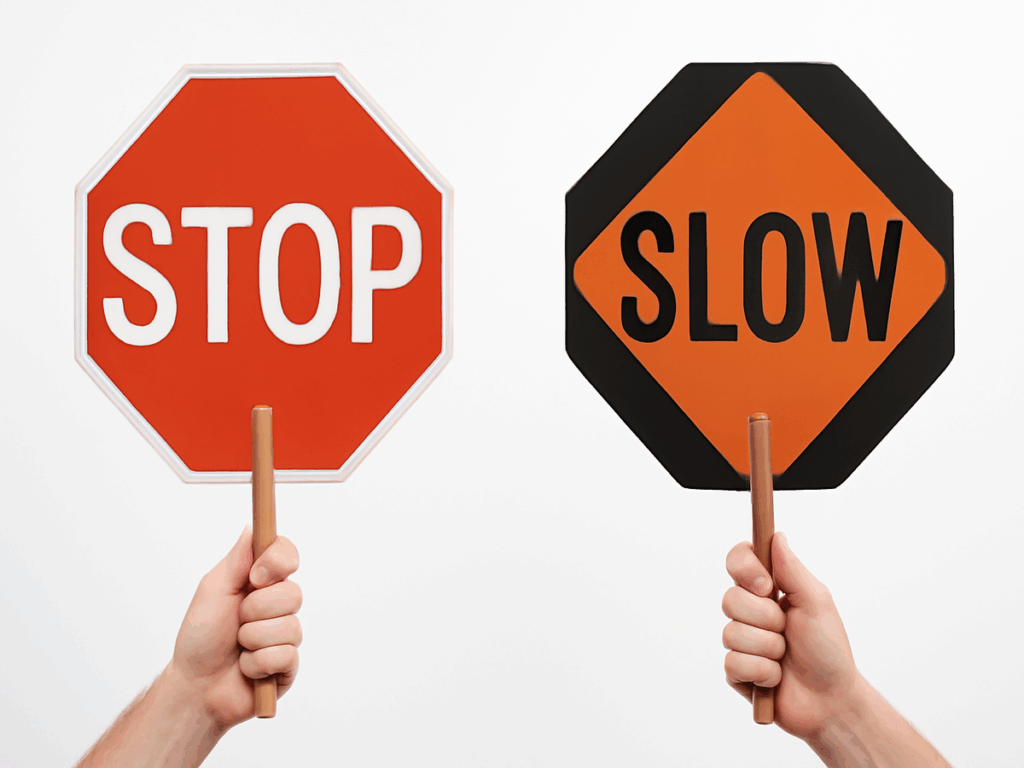
To ensure work zone safety, it’s crucial to select the right traffic paddles that meet established safety standards. Key safety guidelines, such as those outlined by the Manual on Uniform Traffic Control Devices (MUTCD) and OSHA regulations, specify the use of temporary traffic control paddles and crossing guard paddles, each with specific requirements. For example, these paddles must be a minimum of 18 inches wide, with lettering at least 6 inches tall, to ensure they are clearly visible. Choosing the appropriate paddle not only guarantees compliance with these regulations but also significantly improves safety in work zones, reducing the risk of accidents and ensuring smooth traffic flow.
At OPTRAFFIC, we provide industry-standard traffic paddles designed to meet MUTCD, OSHA, and other relevant safety guidelines. Our high-quality paddles ensure compliance with regulations, enhancing safety for both workers and drivers. Trust OPTRAFFIC for reliable, durable signage solutions that keep your work zones safe and compliant.
Key Takeaways
- Pick the correct traffic paddle for your work area. You can use STOP/Slow, signal, directional, or flagging paddles.
- Make sure paddles follow MUTCD rules. They need to be at least 18 inches wide. The letters should be at least 6 inches tall so people can see them.
- Use shiny materials and LED lights to help people see the paddles better. This is important at night or when it is dark.
- Choose strong materials like ABS plastic or aluminum. These last longer in bad weather and with daily use.
- Check your paddles often to make sure they are safe and follow the rules. This helps keep everyone safe and legal.
Overview of Traffic Paddles
Definition
Traffic paddles are commonly found in work zones to manage vehicle flow and ensure worker safety. These handheld signs direct drivers with clear instructions. Most traffic paddles display STOP or SLOW, and they are held up to be easily visible to approaching drivers. Their design adheres to specific standards: the STOP/SLOW paddle is octagonal, at least 18 inches wide, with large, legible letters that are at least 6 inches tall. Bright colors, such as red for STOP and orange for SLOW, enhance visibility, and reflective materials ensure they can be seen at night. For high-traffic roads, larger paddles—up to 24 inches wide—are often used.
- The most common types of traffic paddles in North America are:
- STOP/SLOW paddles with two sides for different messages.
- Signal paddles for telling cars what to do at intersections.
- Directional paddles with arrows for detours.
- Flagging paddles for simple traffic control.
Purpose in Work Zones
Traffic paddles help guide drivers through work zones safely. They give clear signals so drivers know when to stop or slow down. Paddles also tell drivers when to turn or change direction. When you use a paddle, your message is easy to see from far away. This helps stop confusion and keeps everyone safe. Traffic paddles are better than hand flags because they are easier to see. They are also less confusing for drivers.
| Advantage | STOP/SLOW Paddles | Traditional Hand Flags |
|---|---|---|
| Clarity | Easy to see even when cars go fast | Can be hard to understand if faded |
| Less Ambiguity | Stays still and clear in the wind | Wind can make it hard to read |
| Worker Safety | Lets you use one hand for balance | Needs both hands, which can get tiring |
Traffic paddles help keep work zones safe and organized. They help you follow safety rules and protect people on the road.
Types of Traffic Paddles
STOP/Slow Paddles
You use STOP/Slow paddles most often in work zones. These traffic paddles help you control cars and keep workers safe. The paddle has two sides. One side says STOP in big, white letters on a red background. The other side says SLOW in black letters on an orange background. You hold up the STOP side to make cars stop. You turn the paddle to SLOW when you want drivers to move forward slowly.
TIP: Always show the STOP side when you need cars to stop at a specific point. Use the SLOW side when it is safe for cars to move but you want them to drive carefully.
Here are the main ways you use STOP/Slow paddles:
- Stopping Traffic: Hold up the STOP side and use your hand to signal drivers to stop.
- Releasing or ‘Proceed’: Turn the paddle to SLOW and signal drivers to move forward when the road is clear.
- Speed Reduction / Caution: Show the SLOW side to warn drivers to slow down, especially when equipment or workers are near.
STOP/Slow paddles have a simple, double-sided design. The large letters and bright colors make them easy to see from far away. This helps drivers understand your message quickly. These paddles must follow MUTCD rules. The paddle should be at least 18 inches wide. The letters must be at least 6 inches tall. The paddle uses reflective material so drivers see it at night. Some paddles have LED lights for extra visibility. You can choose rigid paddles, roll-up paddles, or paddles with telescoping handles for different needs.
Case Study: In a high-traffic roadwork zone in Chicago, the local construction team opted for STOP/Slow paddles equipped with LED lights for night visibility. The decision led to a 30% reduction in traffic-related near-miss incidents during the night shifts, according to safety reports. This improvement was attributed to the increased visibility and clear messaging provided by the LED-lit paddles, ensuring better communication between flaggers and drivers during high-volume hours.
At OPTRAFFIC, we specialize in providing high-visibility STOP/Slow paddles that meet MUTCD, OSHA, and EN12966 standards. Our products are designed for maximum safety, durability, and ease of use in various work zone environments. Contact OPTRAFFIC today to ensure your work zones are compliant, safe, and efficient with our premium traffic paddles.
Signal Paddles
Signal paddles help you direct traffic in special situations. You use them at intersections, road closures, or when you need to give drivers clear instructions. Signal paddles look like STOP/Slow paddles but may have extra features. Some have flashing lights or bigger text to help drivers see them better.
- Shape & Size: Signal paddles are octagonal and at least 18 inches wide. The letters are at least 6 inches tall.
- Colors: Use a red background with white letters for STOP. Use an orange background with black letters for SLOW.
- Night Visibility: Signal paddles must be retroreflective. Some have flashing white LEDs for better visibility at night.
| Feature | Description |
|---|---|
| Dual-Sided Design | “Stop” and “Slow” on either side for clear traffic management. |
| High Visibility | Reflective surfaces for enhanced visibility during nighttime or low-light situations. |
| Durable Construction | Built from lightweight, weather-resistant materials for long-lasting use. |
| Easy to Handle | Lightweight design allows for comfortable use over long periods. |
You can choose signal paddles with rigid frames, roll-up designs, or telescoping handles. These options help you work safely and comfortably in different conditions.
Flagging Paddles
Flagging paddles work best when you need simple traffic control. You use them in places with low visibility or when you need to get a driver’s attention quickly. Flagging paddles are bright red or fluorescent orange. The colors help drivers see you from far away.
STOP/Slow paddles are often preferred for flagging because they give clear, universal messages. Drivers understand them right away. The high-reflectivity surface lets drivers see the paddle even in poor light. Using paddles shows professionalism and authority. Drivers are more likely to follow your signals. The clear instructions help you control traffic flow and keep everyone safe.
| Requirement | Specification |
|---|---|
| Paddle Size | At least 18 in. wide with letters at least 6 in. tall |
| Paddle Colors | STOP face: white letters on red; SLOW face: black on orange |
| Nighttime Visibility | Retroreflectorized for both paddle and flags |
| Flagger Visibility | At least 500 ft. in daytime, 1000 ft. at nighttime |
You must use flagging paddles that meet MUTCD standards. This ensures drivers see your signals and follow them.
Directional Paddles
Directional paddles help you guide traffic in a certain direction. You use them at detours, street closures, or when you need cars to turn left, right, or go straight. These paddles have large arrows that show drivers where to go. The arrows are easy to see and understand.
Directional paddles come in different sizes. Bigger paddles work best for busy roads. You can choose rigid paddles or ones with telescoping handles. Some have reflective surfaces or LED lights for better visibility at night.
NOTE: Always use directional paddles that meet MUTCD rules. This helps drivers see your instructions and keeps the work zone safe.
You can find many types of traffic paddles for different jobs. Choose the right paddle for your work zone to keep everyone safe and follow the law.
Key Features
Reflective Materials
Traffic paddles must be easy for drivers to see. High-intensity reflective materials help paddles shine at night or in low light. LED flashing Stop-Slow paddles use HI Reflective Material for more brightness and safety. Compact MUTCD-compliant paddles also use strong reflective surfaces. This helps drivers notice your signals fast. Roll-up paddle signs use Superbright™ and Diamond Grade™ reflective materials. These choices meet MUTCD rules and help you stay visible in busy work zones.
Durability
Picking the right material makes your paddle last longer. ABS plastic and aluminum are both good options. ABS plastic does not scratch easily and can handle daily use. It does not carry electricity and costs less money. Aluminum paddles are strong and do not bend. They work well in tough places. The table below shows how each material works:
| Material | Durability Features | Additional Benefits |
|---|---|---|
| ABS Plastic | Durable, scratch-resistant, withstands daily use | Non-conductive, low price |
| Aluminum | Durable, rigid, resistant to bending | Potentially better for certain conditions |
At OPTRAFFIC, our aluminum traffic paddles have been highly praised for their durability and reliability. Our clients, including city traffic departments and construction teams, appreciate how our aluminum paddles withstand harsh weather and constant use without losing shape or performance. One customer noted, “The aluminum paddles from OPTRAFFIC have been a game-changer for our roadwork teams. They last longer, stay visible, and have withstood high winds without issue.”
If you need reliable, long-lasting traffic paddles, contact OPTRAFFIC for high-quality aluminum solutions designed to keep your work zones safe and efficient.
Ergonomics
You hold traffic paddles for many hours, so comfort is important. Look for paddles with ergonomic handles. These handles fit your hand and help stop your hand from getting tired. Lightweight paddles are easier to hold for a long time. Telescoping handles let you change the length. This helps you find the best fit for your height and reach.
Weather Resistance
Weather can change fast in a work zone. You need paddles that can handle rain, wind, and hot or cold days. Many paddles have weather-resistant covers to protect them. ABS material can take hits and bad weather. Premium .080 gauge aluminum does not rust, bend, or fade. The table below shows how these features help:
| Feature | Description |
|---|---|
| Durability and Safety | Housed in weather-resistant enclosures, ensuring they withstand adverse weather conditions. |
| Built to Last | Made from durable ABS material, resisting impact and weather. |
| Material | Benefits |
|---|---|
| Premium .080 Gauge Aluminum | Rust-free, weather-resistant, built to withstand harsh outdoor conditions without warping or fading. |
Visibility
Drivers need to see your signals from far away. MUTCD rules say paddles must be at least 18 inches wide. The letters must be at least 6 inches tall. Some states use even bigger paddles and taller letters for better visibility. The chart below shows paddle size and letter height rules in different states:
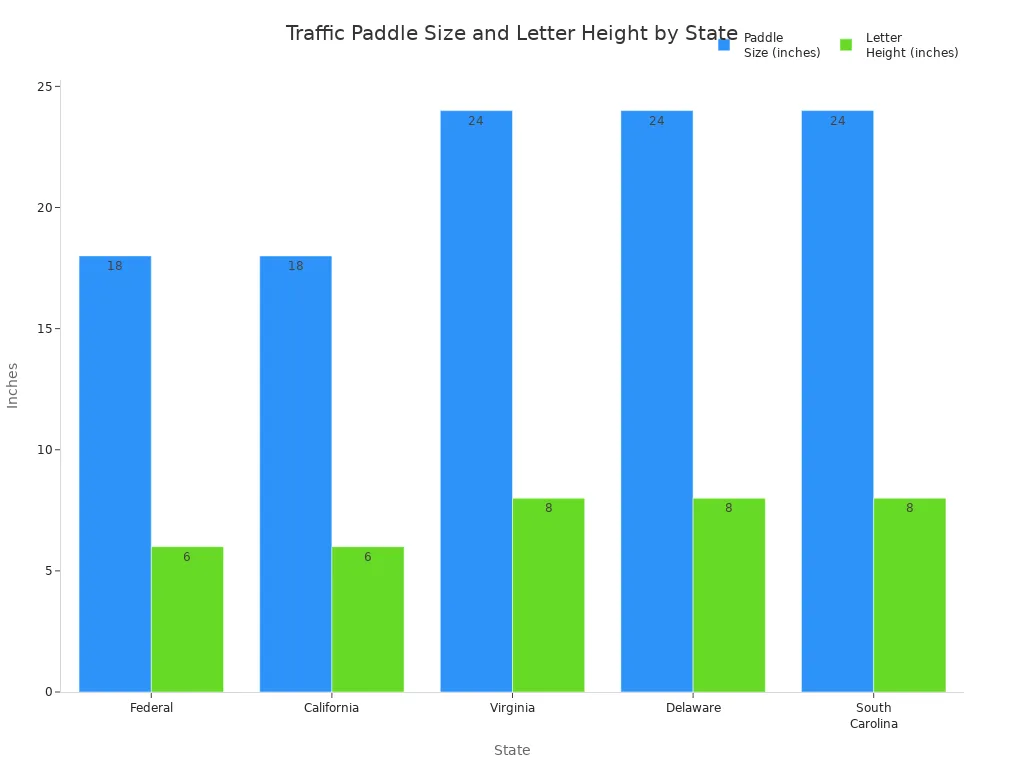
Bright colors like red, fluorescent red, and orange help drivers see your paddle fast. Big, bold letters make your message easy to read. You keep everyone safer when you pick paddles that meet these visibility rules.
MUTCD Compliance
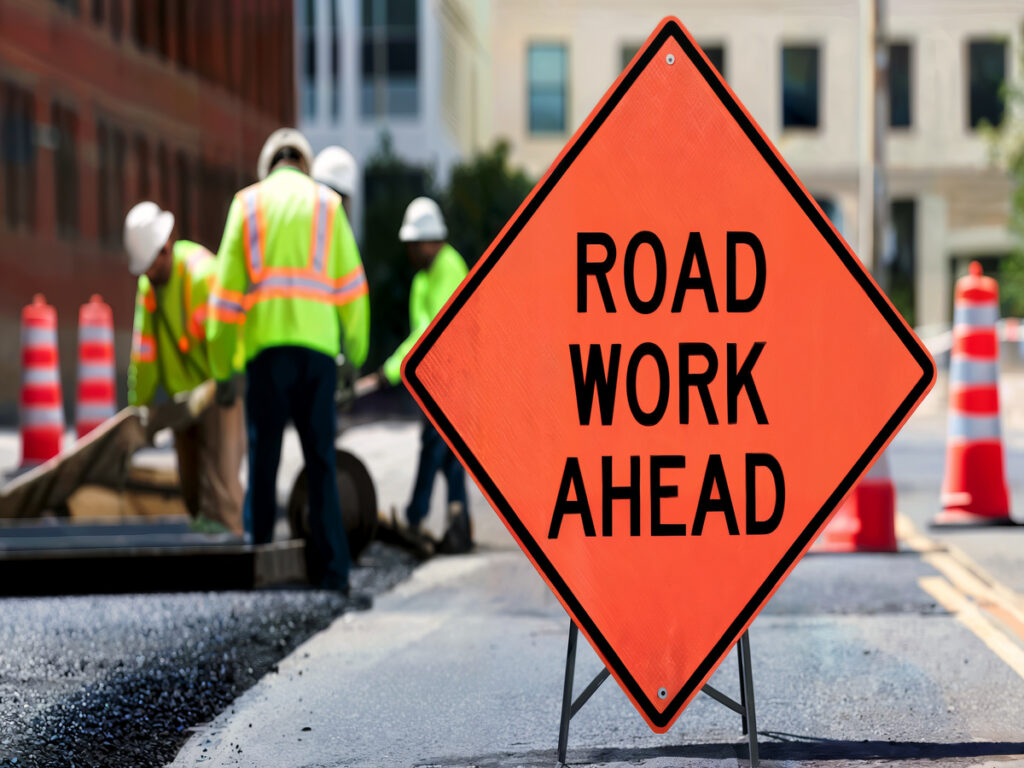
Standards
You have to follow MUTCD standards when using traffic paddles. These rules help keep everyone safe and make sure your tools are legal. MUTCD tells you what size, color, and reflectivity your paddle needs. It also says what training you need. You must use the right materials so paddles are easy to see, even at night. Flaggers must finish training that teaches how to use paddles and what to do in emergencies.
| Key Aspect | Details |
|---|---|
| Proper Training for Flaggers | Flaggers must complete training covering MUTCD requirements, proper paddle use, and emergency procedures. |
| Material Standards | Use of aluminum substrates and specific retroreflective sheeting for signs. |
| Retroreflectivity Requirements | Signs must meet minimum retroreflectivity levels and undergo regular inspections. |
Note: You should check your paddles often. This helps you keep them in good shape and follow all safety rules.
Legal Importance
If you do not use MUTCD-compliant paddles, you could get in trouble. Not following the rules can cause legal problems for people who own the paddles. If your paddles do not meet the rules, they might not count as legal. This means you could be blamed if someone gets hurt or there is a crash. Courts might not support tickets or actions if you use paddles that do not follow the rules. You keep yourself and your team safe by following MUTCD rules.
Safety Impact
Using MUTCD-compliant paddles helps keep work zones safe. These paddles are easy for drivers to see and understand. You lower the chance of accidents by using the right paddles. Here are some ways MUTCD-compliant paddles help with safety:
- Flashing slow/stop paddles with strobe lights are easier to see.
- Drivers see your signals faster and react sooner.
- Fewer accidents happen when you use approved paddles.
You make your work zone safer and more dependable when you pick paddles that meet MUTCD standards.
For a deeper dive into the MUTCD standards for STOP/Slow paddles, check out our detailed blog on Understanding MUTCD Standards for STOP Slow Paddles in 2025.
Choosing Traffic Paddles
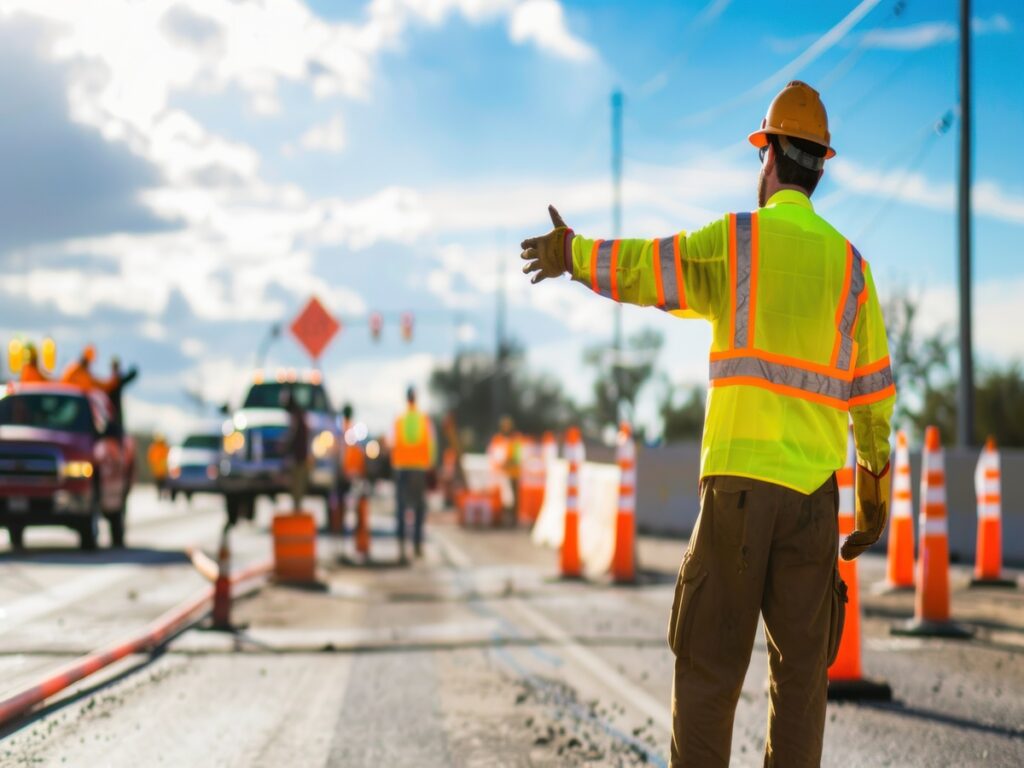
Work Environment
Think about your work area before picking traffic paddles. Busy roads need strong paddles that last a long time. If lots of cars drive by, use paddles made from tough aluminum. Lower speed limits help keep people safe in work zones. If your site is close to a crosswalk, use extra signs and barriers. These help protect people who are walking.
- Busy roads need tough signs and barriers.
- Slow speed zones need clear, easy-to-read paddles.
- Areas with walkers need fences and crosswalk signs.
- Bright lights and reflective paddles help in dark or rainy weather.
Tip: Always look at your work zone for special needs like heavy traffic or sidewalks.
Weather Conditions
Weather can change fast. You need paddles that work in rain, snow, or bright sun. Reflective paddles and flashing lights help drivers see you in fog or at night. Aluminum paddles do not rust, so they last longer when it is wet. Pick paddles with covers that protect them from bad weather if you work outside a lot.
Case Study: In Canada, where roadwork projects often face severe winter conditions with snow and ice, the Ontario Ministry of Transportation chose aluminum paddles with reflective strips for their road crews. The reflective surface ensures high visibility even during heavy snowfall or low-light conditions, which significantly improved safety for workers in busy construction zones. Similarly, in Australia, aluminum paddles with flashing lights were implemented for high-traffic construction sites, helping workers maintain clear communication with drivers, particularly in areas prone to fog and heavy rain.
Ergonomics & Handling
It is important to be comfortable when holding a paddle for hours. Lighter paddles help your arms and hands not get tired. Handles with good grips make paddles easier to hold. Some paddles have handles that get longer or shorter. Bright LED lights help drivers see your signals better.
| Ergonomic Consideration | Description |
|---|---|
| Lighter paddles | Makes it easier for workers to hold paddles. |
| Ergonomic handles and grips | Helps you control the paddle and stay comfortable. |
| High visibility features | Keeps everyone safer in dark or rainy weather. |
| LED lights and flashing signs | Makes your signals easy for drivers to see. |
Size & Visibility
Drivers need to see your paddle from far away. The best paddles have eight sides and are at least 18 inches wide. Letters should be at least 6 inches tall. Use red with white letters for STOP. Use orange with black letters for SLOW. Retroreflective paddles shine at night so drivers see them. On fast roads, use bigger paddles up to 24 inches wide.
| Feature | Specification |
|---|---|
| Shape & Size | Eight sides, at least 18 inches wide |
| Letter Height | At least 6 inches tall |
| Colors | Red with white letters for STOP; orange with black letters for SLOW |
| Night Visibility | Must shine at night with special material |
| Optional Oversize | 24-inch paddles are good for fast roads |
| Handle | Light, strong handle, 3–5 feet long |
- Orange backgrounds help drivers see your signals quickly.
- Aluminum paddles last longer than other materials.
- MUTCD and DOT rules make sure your paddles are legal.
Note: You can buy MUTCD-approved paddles from trusted sellers in the United States. Some good choices are Flags & Paddles, Traffic Paddles & Flags, Traffic Control Devices, and Stop/Slow Paddles – Traffic Cones. These sellers ship fast and have many paddle sizes for your needs.
You help keep work zones safe by picking the right traffic paddles. Knowing about paddle types and MUTCD rules helps you follow laws and protect people. Check your equipment often to make sure it works well. Using MUTCD-compliant paddles gives you many benefits:
| Benefit Description | Details |
|---|---|
| Enhanced Visibility of Flaggers | Drivers can see flaggers better, even when it is hard to see. |
| Use of Advanced Technology | LED paddles help keep everyone safe at night. |
| Improved Safety Measures | Good flagger stations and clear signs make work zones safer. |
Some common problems are:
- Signs for speed limits and detours
- Warning signs for dangers
- Guide signs for detours
- Temporary lines on the road
- Flagger stations with stop/slow paddles
Look for new ways to keep your team and drivers safe.
FAQ
What is the difference between a STOP/Slow paddle and a signal paddle?
A STOP/Slow paddle is primarily used to control the flow of traffic, allowing workers to stop or slow vehicles in work zones. In contrast, a signal paddle is used to direct traffic at intersections or around road closures, often equipped with flashing lights for improved visibility, especially at night.
Are there different sizes of traffic paddles?
Yes, traffic paddles come in various sizes. However, the MUTCD (Manual on Uniform Traffic Control Devices) specifies that the minimum size for a STOP/Slow paddle should be 18 inches in diameter, with letters at least 6 inches tall for clear visibility. Larger paddles may be used in high-traffic areas or where increased visibility is required.
What is the minimum size requirement for a STOP/Slow paddle?
According to the MUTCD guidelines, the minimum size for a STOP/Slow paddle is 18 inches in diameter, with letters at least 6 inches tall. This ensures the paddle is visible to drivers, even from a distance or at high speeds.
How do you know if a traffic paddle is MUTCD-compliant?
To determine if a traffic paddle is MUTCD-compliant, check the size, color, and reflectivity of the paddle. The paddle should be at least 18 inches wide, with letters 6 inches tall, and use retroreflective materials for enhanced visibility. It should also meet the necessary standards for color (orange for signal, red for STOP) and light or non-lighted functionality.
How long can a flagger STOP traffic?
A flagger can stop traffic for as long as necessary to safely manage the work zone. MUTCD guidelines suggest that traffic stoppages should be as brief as possible to minimize disruptions. The exact duration of the stoppage depends on the nature of the work and the traffic conditions. For instance:
- Longer Stoppages: In high-traffic zones or during complex construction tasks, traffic may be stopped for up to 15 minutes at a time, especially when large equipment or multiple workers are involved. Flaggers may also use signal paddles with flashing lights to alert drivers before the stoppage occurs.
- Short-Term Stoppages: In low-traffic areas, a flagger might stop traffic for 1-2 minutes while workers clear debris or make minor adjustments.
Can traffic paddles be customized?
Yes, traffic paddles can be customized to meet specific needs, such as adding logos or adjusting the color scheme for different agencies. However, any modifications should still comply with MUTCD standards to ensure they are legally compliant and effective in controlling traffic.
Where can you buy MUTCD-compliant traffic paddles?
You can buy MUTCD-compliant paddles from trusted suppliers. OPTRAFFIC offers a full range of STOP/Slow, signal, and directional paddles designed for safety and compliance.
